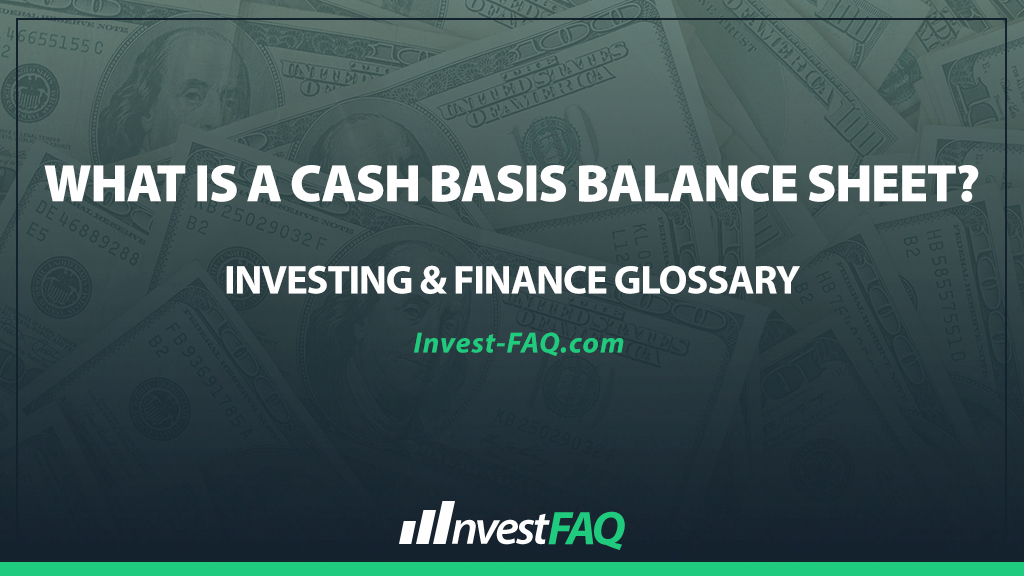
Cash Basis Balance Sheet
Contents
A cash basis balance sheet is a financial statement that presents the assets, liabilities, and equity of a company under the cash basis accounting method. This method records transactions only when cash is exchanged, meaning revenue is recognized upon receipt, and expenses are recognized when paid, differing from accrual basis accounting which recognizes transactions when they are earned or incurred, regardless of cash movement.
The cash basis balance sheet is predominantly used by small businesses, sole proprietors, and companies with straightforward financial transactions.
It simplifies financial reporting by focusing solely on cash flow, making it easier for these entities to track how much cash they actually have on hand at any given time, which is crucial for day-to-day operations.
However, it may not always provide a complete picture of a company’s financial health, as it does not account for receivables, payables, or accrued liabilities that have not yet resulted in cash transactions.
Example of a Cash Basis Balance Sheet
Consider “Simple Delights,” a small bakery that operates on a cash basis. At the end of the year, its balance sheet includes $15,000 in cash (from sales and initial capital), equipment valued at $5,000 (purchased with cash), and equity of $20,000. There are no accounts receivable or payable because it records transactions only when cash changes hands.
Assets: Cash of $15,000 and equipment of $5,000.
Liabilities: Since transactions are recorded only upon cash exchange, and assuming no debt, liabilities are $0.
Equity: Owner’s equity is $20,000, representing the sum of assets since there are no liabilities.
In “Simple Delights’” case, the cash basis balance sheet straightforwardly reflects the cash available and the assets purchased with cash, alongside the owner’s equity, without complicating factors like receivables or payables.
This simplification benefits cash management and immediate financial assessment but might not fully represent the bakery’s future obligations or incoming revenue not yet received in cash.
Significance for Investing & Finance
The cash basis balance sheet holds significance in several areas:
Simplicity and Clarity: It offers an easily understandable snapshot of a business’s cash position, suitable for small businesses with less complex financial structures.
Cash Flow Management: By focusing on cash transactions, it aids in effective cash flow management, crucial for the daily operations of small businesses.
Limitations for Growth: While beneficial for simplicity, the cash basis method may not be suitable for larger businesses or those seeking growth, as it lacks the detailed financial information about receivables, payables, and accrued items provided by accrual accounting.
Tax Reporting: Some businesses opt for cash basis accounting for its simplicity in tax preparation, although it has limitations on eligibility based on the size and type of business.
In summary, a cash basis balance sheet is a financial statement tailored to businesses that prefer or require a straightforward method to account for their financial position, focusing solely on cash transactions.
While it offers advantages in simplicity and immediate cash flow visibility, it may not capture the complete financial picture compared to accrual basis accounting, highlighting the trade-offs between simplicity and comprehensiveness in financial reporting.
FAQ
What is the main difference between a cash basis balance sheet and an accrual basis balance sheet?
A cash basis balance sheet records transactions only when cash changes hands, focusing on actual cash flow, while an accrual basis balance sheet includes all earned revenues and incurred expenses, regardless of when cash is received or paid, providing a more comprehensive view of a company’s financial position.
Can a business switch from a cash basis balance sheet to an accrual basis balance sheet?
Yes, a business can switch from a cash basis to an accrual basis balance sheet, but it requires adjusting entries to account for receivables, payables, and other accrued items not previously recorded under the cash basis, which may necessitate professional accounting guidance to ensure compliance with accounting standards.
Why might a small business prefer a cash basis balance sheet over an accrual basis balance sheet?
Small businesses might prefer a cash basis balance sheet because it simplifies accounting by focusing only on cash transactions, making it easier to manage cash flow and prepare financial statements without the need for tracking receivables or payables.
How does a cash basis balance sheet affect the way a company reports its profitability?
A cash basis balance sheet might show different profitability compared to an accrual basis, as it only recognizes revenue when cash is received and expenses when they are paid, potentially leading to fluctuations in reported profitability based on the timing of cash transactions rather than the period in which revenues were earned and expenses incurred.
